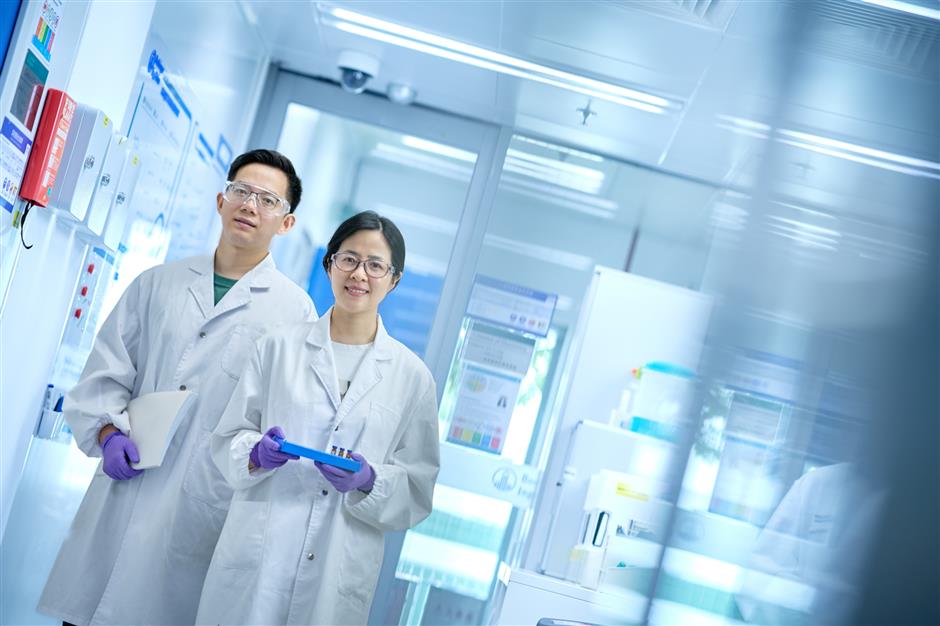German pharma giant upbeat on China market, talks up innovation environment
German pharmaceutical giant Boehringer Ingelheim said China remains a market of continued interest and would keep up the efforts to introduce innovative medicines and treatment options to the country.
“This year marks our 30th anniversary of presence in the market, and that number itself shows our long-term commitment also in the market,” said Hubertus von Baumbach, Chairman of the Board of Managing Directors at Boehringer Ingelheim.
“We have seen clear signal by the Chinese government to welcome foreign direct investment and it continues to open doors to investment. At the same time China has put innovation especially in the context of human health into the core strategic pillars of its five-year plan,” he noted.
He made the comments while sharing the group’s financial results for 2024 on April 2 and it expects steady progress in new research and development initiatives and new medicine launches in the coming years.
“Another important sign is the increasing rigorous of protection against intellectual property rights in China, and we certainly need to be present in China where innovation is happening locally,” he added.
In the next five years, the company expects to receive over 25 new regulatory approvals for new medicines and new indications for existing ones in China in the Human Pharma area.
"As our current pipeline continues to mature and more products come closer to a potential market introduction, we have entered a pivotal phase of high investments, to bring these new innovations to patients," Von Baumbach noted.

Boehringer Ingelheim expects to receive over 25 new regulatory approvals for new medicines and new indications for existing ones in China in the Human Pharma area.
The company's "China Key" strategy was launched in 2019, enabling China to participate in all early-stage clinical research projects worldwide in a bid to accelerate the simultaneous launch of global innovative drugs in the country.
It has reached significant milestones in disease areas, including stroke, respiratory, oncology, and metabolism, following the strategic initiative.
Last year, the Chinese National Medical Products Administration (NMPA) approved the SPEVIGO (spesolimab injection) for the reduction of occurrence of generalized pustular psoriasis (GPP) in adolescents from 12 years of age and weighing more than 40 kilograms and adults, which came earlier than approval in other markets around the globe.
By March this year, Boehringer Ingelheim had reached strategic partnership with 32 major clinical research institutions in China to speed up the clinical research progress so that Chinese patients could benefit from new medicines and treatment options.
In China, the company has focused on major therapeutic areas such as respiratory, cardio-renal metabolism, central nervous system, oncology, and immunology.
In 2024, group net sales rose by 6.1 percent to 26.8 billion euros (US$29.2 billion) after being adjusted for currency effects. The total number of patients it reached jumped 8.0 percent from the previous year to 66 million in 2024.
Globally, the group's R&D investment in 2024 rose to 6.2 billion euros, or 23.2 percent of its net sales.
Human Pharma sales rose by 7 percent to 21.9 billion euros, led by type 2 diabetes, heart failure as well as chronic kidney disease treatment JARDIANCE and OFEV, which is used to treat idiopathic pulmonary fibrosis and certain fibrosing interstitial lung diseases.
Human Pharma R&D spending rose to 5.7 billion euros, or 27.6 percent of the business unit's net sales.
"In the past five years, Boehringer Ingelheim has invested approximately 25 billion euros in R&D," said Frank Hübler, member of the board of managing directors with responsibility for finance. "With the innovations currently in our pipeline we will further increase investments in R&D in the years to come."
After positive data from pivotal studies, the company is preparing multiple new product launches, starting this year with potential launches of zongertinib for HER2-mutated lung cancer patients and nerandomilast for patients with idiopathic pulmonary fibrosis and progressive pulmonary fibrosis.
Both zongertinib and nerandomilast have been submitted to regulatory authorities globally and first launches in the United States are anticipated in the second half of this year, pending approval.
The Human Pharma pipeline includes over 10 new Phase II and III trials over the next 12 to 18 months, which will potentially result in a range of significant launches in the next five years.
The Animal Health business unit recorded sales increase of 1.9 percent to 4.7 billion euros in 2024, mainly driven by pet parasiticides and therapeutics, poultry and ruminant.
Last year, Boehringer Ingelheim supported livestock producers and governments by quickly providing vaccines and technical assistance for outbreaks of transboundary animal diseases (TADs), such as avian influenza, bluetongue virus and foot-and-mouth disease.
In China, a latest partnership with local animal health company Kingmiao Animal Health was reached last month to speed up R&D progress for new animal vaccines.
On the sustainable development front, Boehringer Ingelheim is on track in its target to become carbon neutral in its company operations (Scope 1 and 2) by 2030. It increased global renewable electricity purchases to around 75 percent in 2024, primarily due to transitioning to renewable solutions at various sites, including Japan and China.











